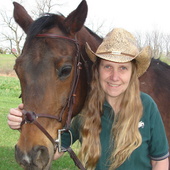Tips On Selecting Horse-Friendly Property and Facility
Many horse owners have their own idea of their dream horse farm. Some prefer having a few acres with a barn and fenced in pastures to keep a couple horses in their backyard. Others would rather have large acreage to have a horse facility complete with indoor and outdoor arenas, as well as growing their own hay on the property. Each person has their own version of the ideal horse property.
When shopping for horse property in Eastern Pennsylvania, there are some basic things to consider.
Start out with a list prior to searching. Write down everything you would like on your dream horse property. Include everything from the type of view out of your window to the type of neighborhood along with available services in the area. You may find a property that comes close to what you are looking for.
Next, consider the location. Remember, when it comes to real estate, location is a huge factor. Drive around the areas you think you would like to reside. This will give you a feel for the area, the activities, riding areas, schools, etc. as well as the type of area it is. It is important to learn as much about the area of your choice as possible and if it offers what you want from it.
 Decide on the size property would be right for you. The ideal is to have is at least one acre per horse, although horses can be kept on smaller acreages. The smaller acreages do require good management techniques to avoid mud and manure messes, but it can be done. Horses should not be allowed to graze on pasture during the winter when grass is dormant and the soil is wet. The pasture grass should not be grazed below three inches.
Decide on the size property would be right for you. The ideal is to have is at least one acre per horse, although horses can be kept on smaller acreages. The smaller acreages do require good management techniques to avoid mud and manure messes, but it can be done. Horses should not be allowed to graze on pasture during the winter when grass is dormant and the soil is wet. The pasture grass should not be grazed below three inches.
Soil and vegetation should also be a consideration. In order to grow good quality pasture grass, the soil makes a major impact. Well drained soils are great for buildings and confined areas. Nutrient rich soil makes for optimal pastures. The local co-operative extension office can help in assessing the soil. Different vegetation grows in different types of soil, which will help assess they type of soil you may have.
Drainage and topography are natural features to consider. Water running off of hillsides can collect in horse paddocks below, creating muddy conditions. Check to see where and how the surface water runs. It is preferable that the water drains away from the buildings and paddocks. Remember to check if there are streams or wetlands nearby. Mosquitoes and bugs breed near water sources and wet areas. This may not be what you would want.
Look at all the structures, fences and arenas. Ask yourself these questions when considering what modifications will be necessary to make a property suitable for you and your horses:
- Are existing shelters adequate and in good shape?
- Are barns safe for the horses so that they cannot seriously injure themselves?
- Are the buildings large enough and the ceilings high enough?
- Is the flooring and footing appropriate?
- Is the fencing horse safe and in good shape?
- Are the existing structures in places where they are suitable for your needs?
- Will it be easy to complete the chores in a workable order?
Other questions to keep in mind would be:
- Does the property allow access for large vehicles such as trucks with trailers?
- Are the gates wide enough for tractors, trucks and emergency vehicle to get through?
- How close is the nearest fire department? What water source do they use? Do they have water trucks or use an area pond?
In rural areas, chances are that every property has their own well and septic system. Check to see where these are located. Find out where the septic and drain fields are located. These should not be in high traffic areas. Wells should not be in close proximity to septics, manure piles, confinement areas, any fuel storage areas, or any potential source of contamination.
Check out the neighborhood and community. Is the area horse friendly. It is nice to have a community where others understand horses, have common interests and have available horse events and services in the area. Non-horse owning neighbors might not be receptive of things such as odors, flies and manure. Consider what your neighbors might think of the horses before buying the property.
Look to see if there are riding opportunities in the area. Can a riding arena, indoor and/or outdoor, be constructed and what is the cost? Is there access nearby for equestrian trails to ride? Some trails may not allow horses.
One last point to consider is zoning. This is very important. Before buying check with the local zoning ordinances and building codes to see if what you have planned will be allowed, including the number of horses on the property. Research the county and local regulations. It will save you frustration and time down the road.
Doing your research ahead of time will make it easier for you to transition into living and managing horses on your new horse property. Keep these tips in mind when searching for your dream horse property.






Comments(2)